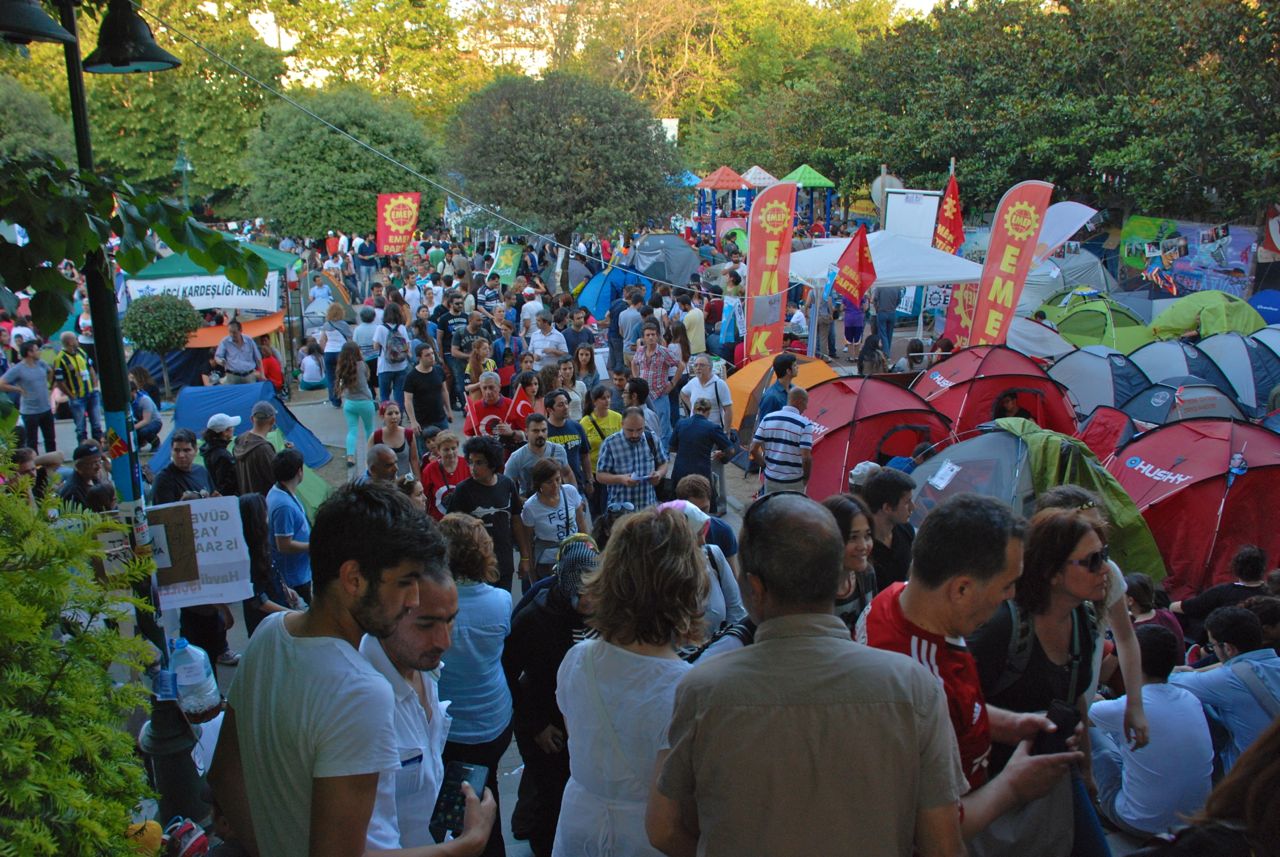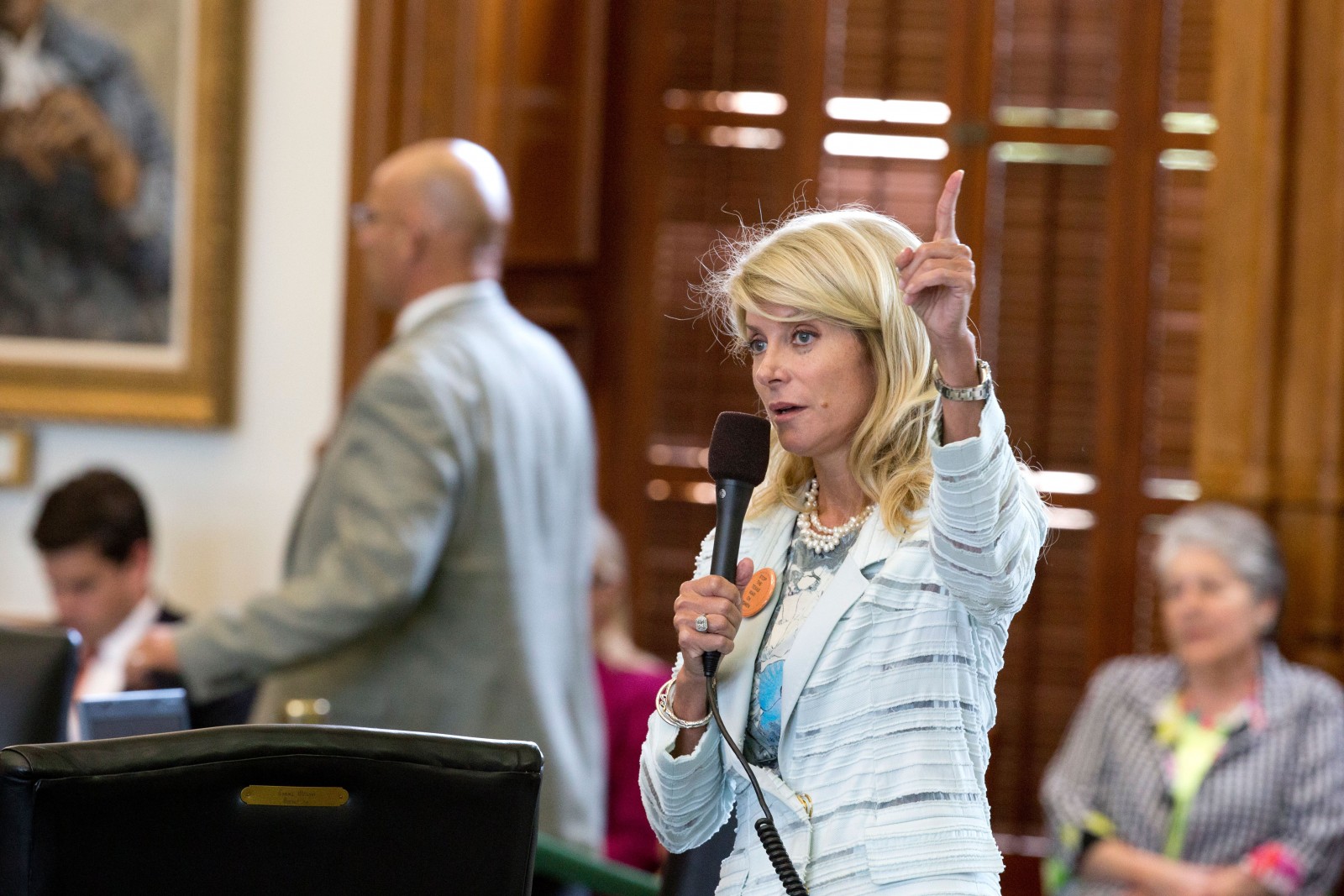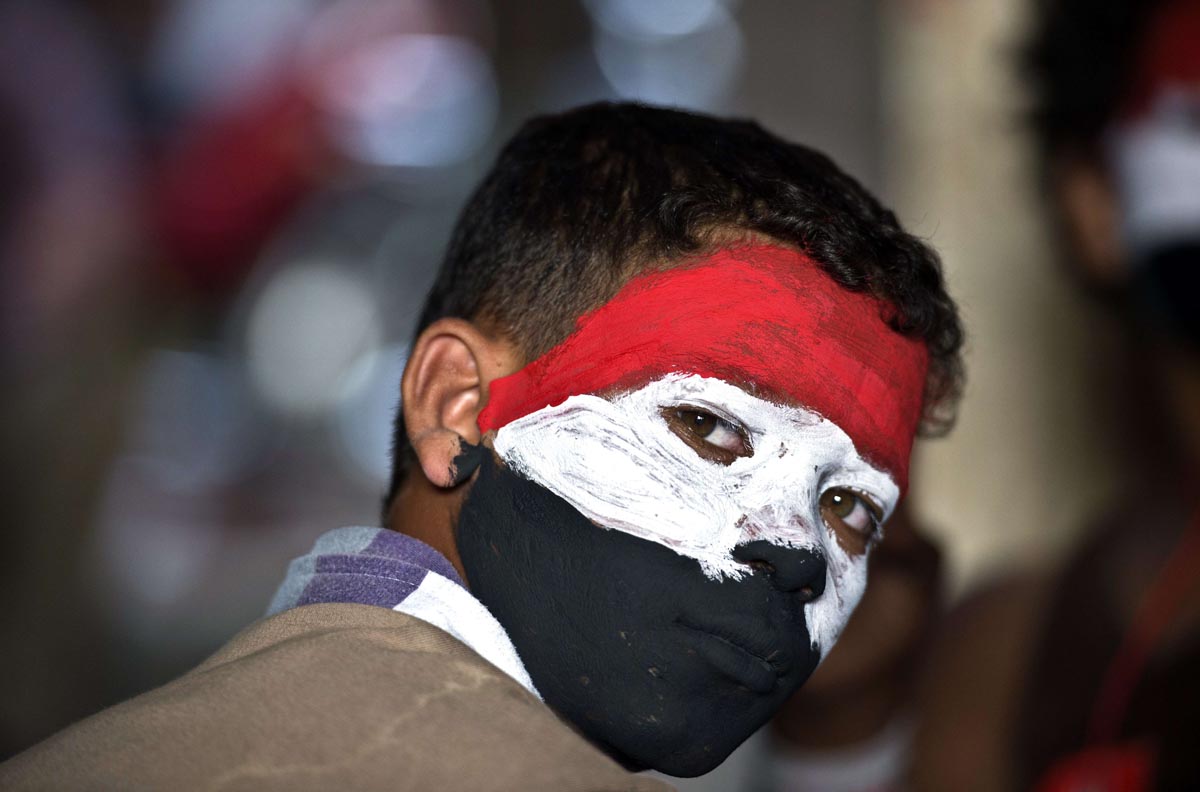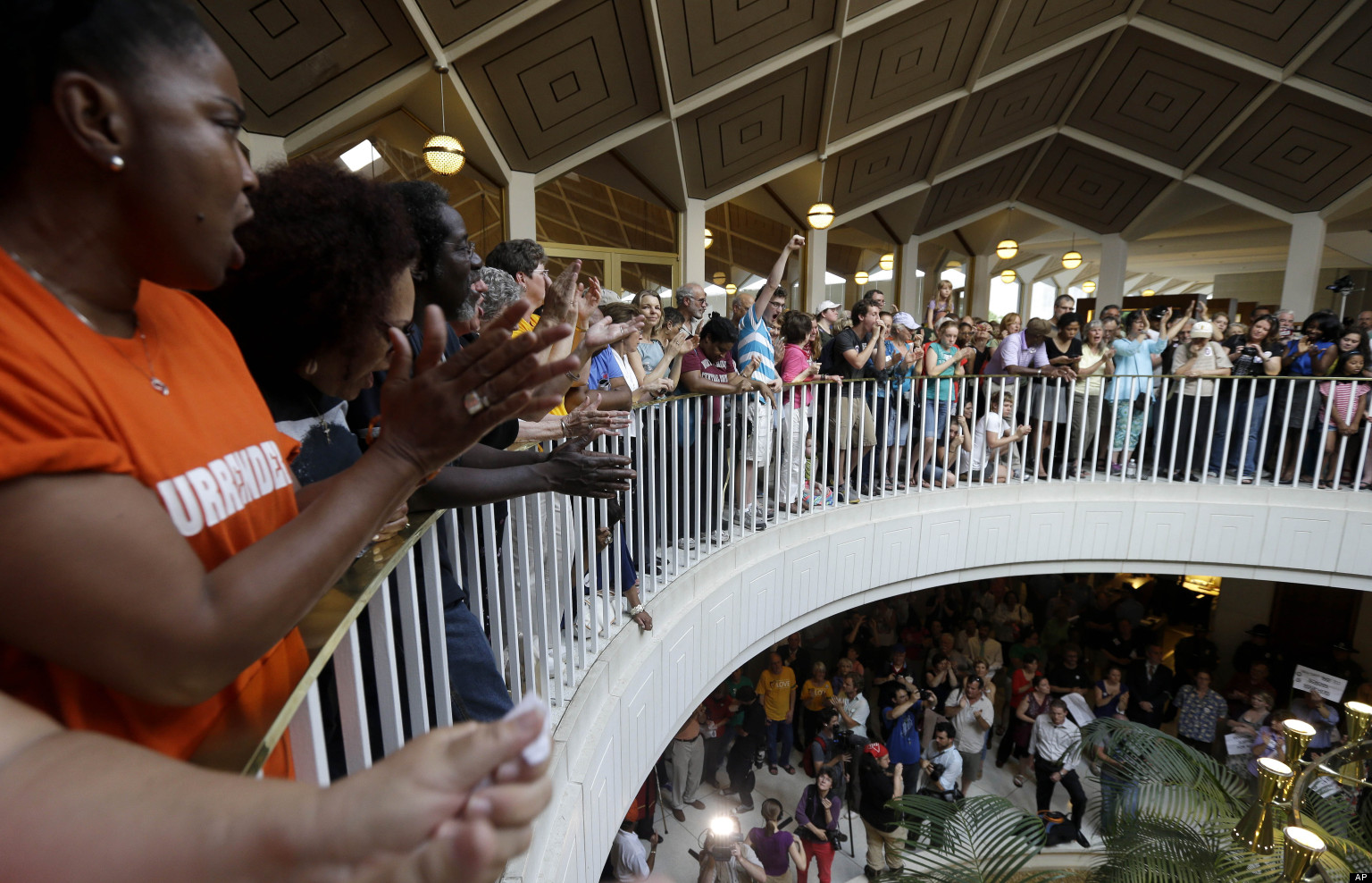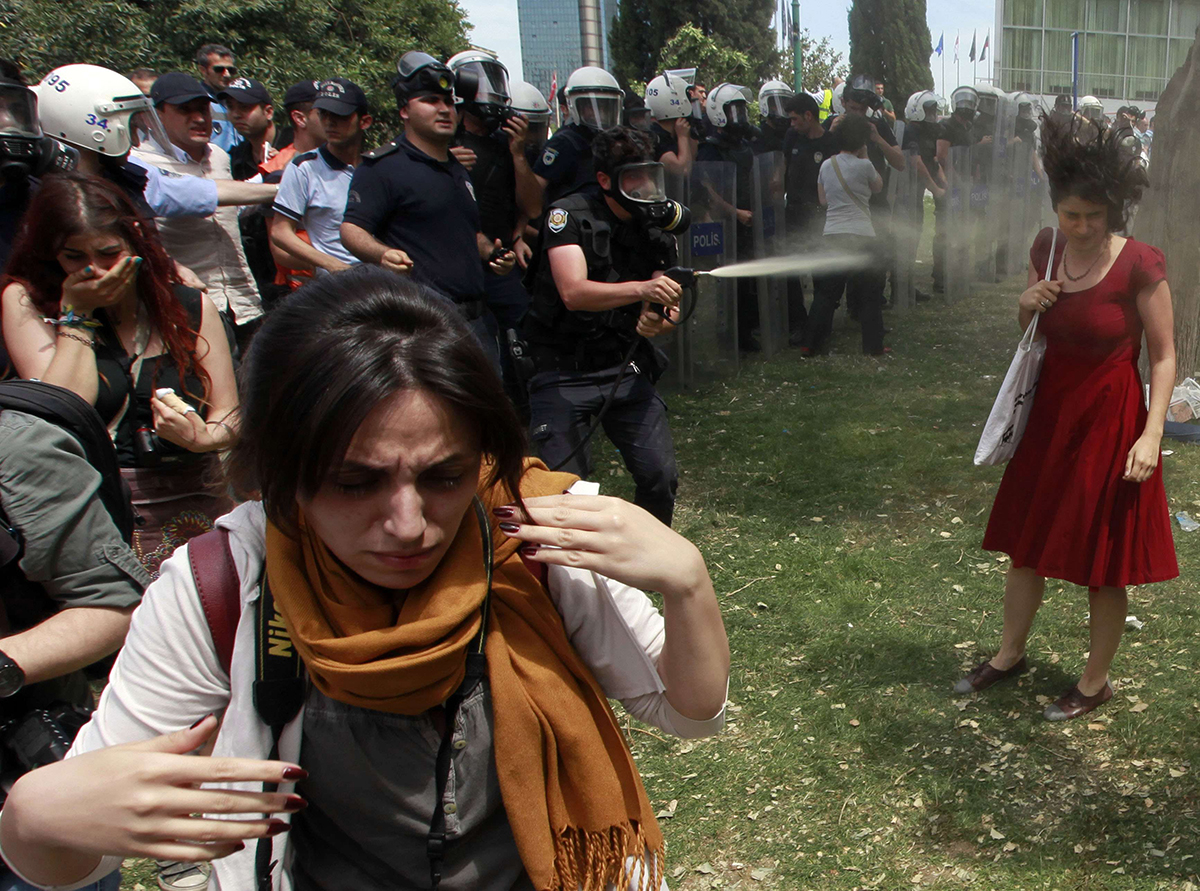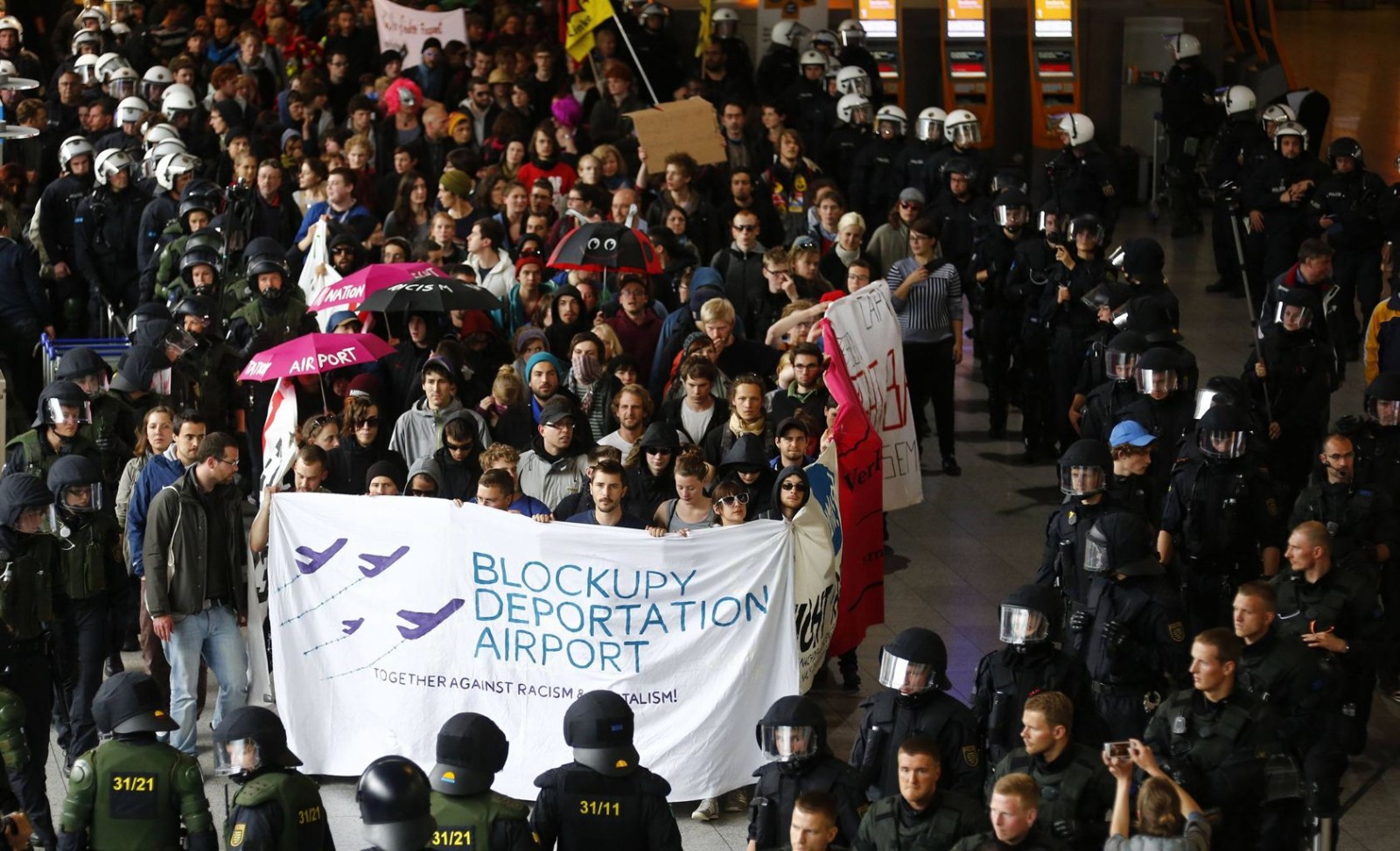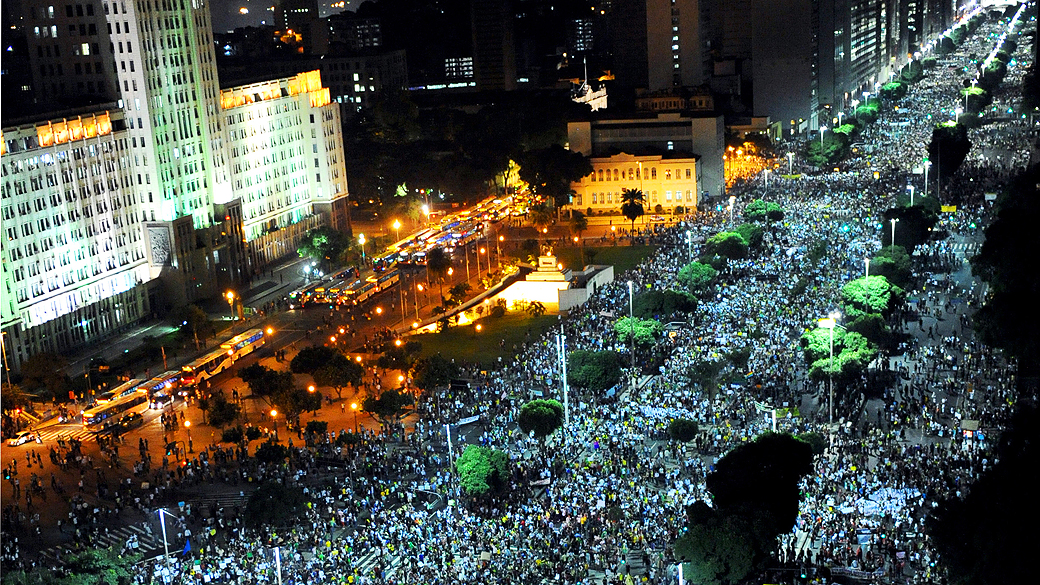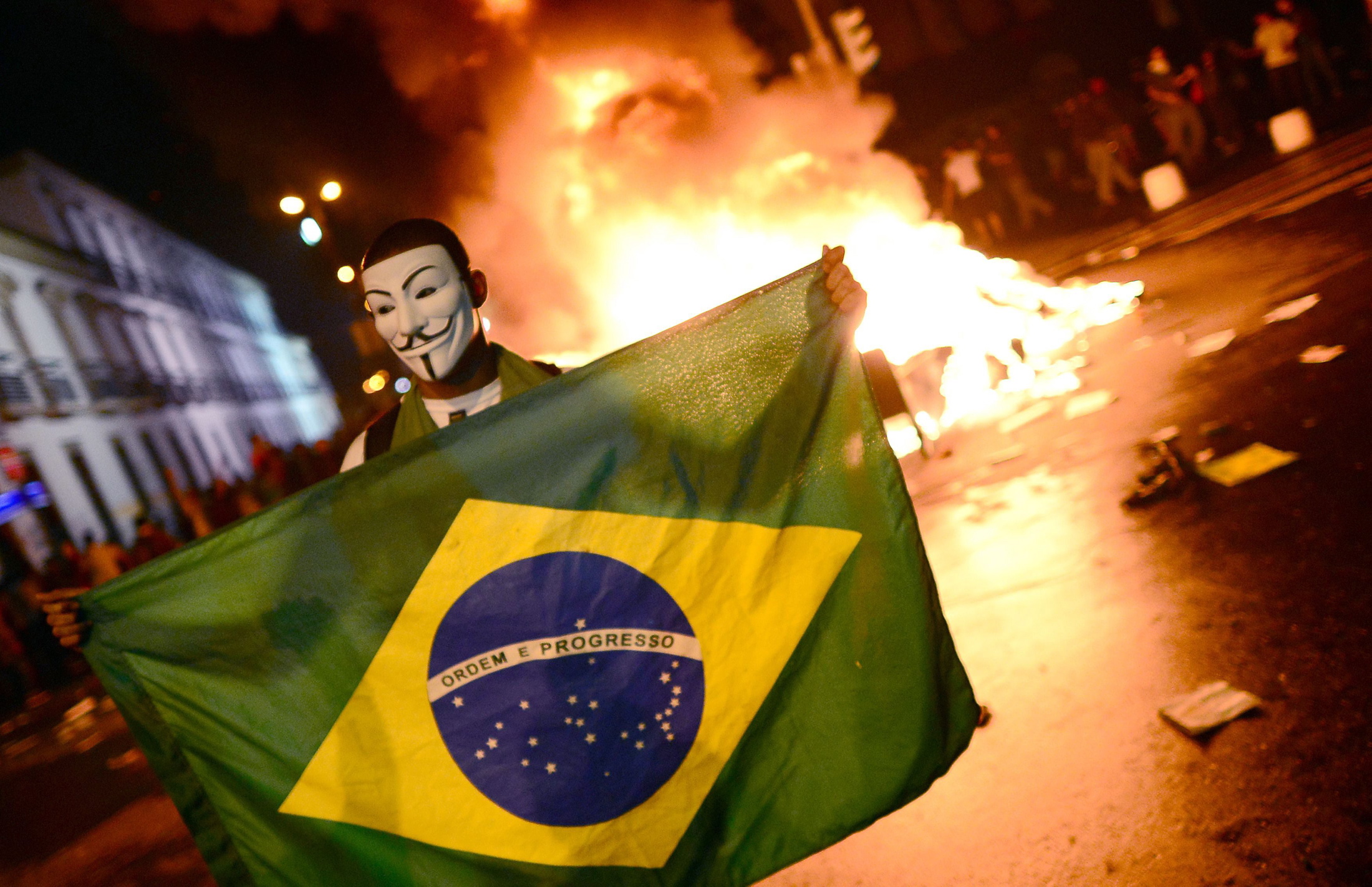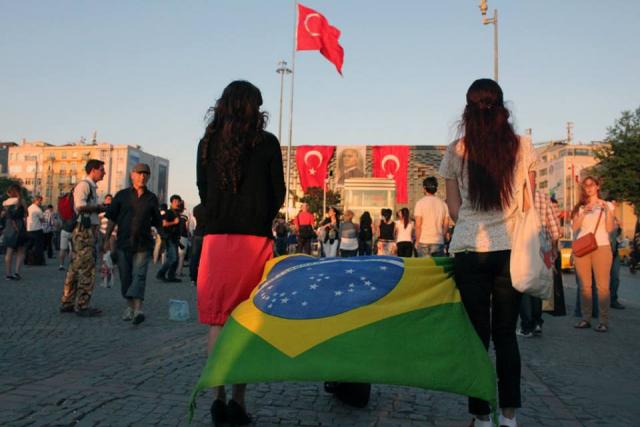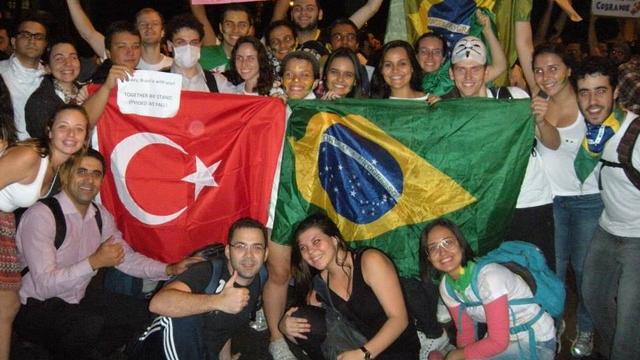
The summer of 2013 has seen some of the largest, most vocal mass protests around the world since 2011. When sparks flew out of Turkey’s struggle to save Istanbul’s last standing green space in Gezi Park, other parts of the world took note: people exercised power through occupations, strikes and blockades from Frankfurt, Germany to Sanford, Florida and beyond.
While the demonstrations have shaken many people out of complacency, institutional powers have also sat up. An escalated war on whistleblowers, Orwellian surveillance state tactics and diminishing civil liberties have stacked up. But after a fearless summer of mass mobilizations, the world’s protesters are resisting more now than ever before.
Here are some of the highlights from this summer’s biggest and most effective pushbacks:
MAY
After a humble attempt to stop the destruction of Taksim Square's Gezi Park in Istanbul, thousands of Turkish protesters descended on the city center in opposition to extreme police brutality that greeted the peaceful demonstrators. The public's reaction to photos of point-blank pepper-spraying and baton-swinging riot officers caused outrage in cities across Turkey. Tens of thousands occupied Gezi Park and labor unions went on strike to oppose repression of freedom of expression, press and assembly. Occupy Gezi is flourishing and still holds open people’s assemblies to address Turkey’s most pressing structural problems.
Blockupy protesters in Frankfurt, Germany shut down access to the country’s most powerful financial institutions in late May, including the European Central Bank and the Deutsche Bank headquarters. More than 3,000 demonstrators halted business as usual in response to the Eurozone’s crippling recession and a 13 percent unemployment rate that has left much of the continent in financial decay.
Also at the end of May, some 2 million people participated in a global March Against Monsanto, demanding an end to the St. Louis, Missouri-based corporation that unlawfully spread genetically modified food across the planet. More than 400 cities mobilized in solidarity with farmers and in resistance against the dangers of GMO crops, as U.S. states like Washington geared up to push for a mandatory GMO-labeling law this fall with Initiative 522.
JUNE
In a stirring display of people power, Texas feminists, their allies and Senator Wendy Davis shut down a restrictive abortion bill in a 13-hour filibuster. Contending that Davis broke the terms of the filibuster, lawmakers tried to end the filibuster when the capitol building exploded with protesters’ chants. Though the bill was defeated, Gov. Rick Perry called for a special second session and eventually passed the legislation, which criminalizes abortion after 20 weeks, and forced the state to close all but five abortion clinics.
The Chilean student movement picked up momentum in June when thousands of students, educators and labor unions marched through the streets of Santiago and occupied 28 schools throughout the country to demand immediate education reform and to connect the working class struggle with economic inequality to the country’s poor school systems. Because Chile is the world’s top copper producer, protesters also called for a redistribution of the country’s copper wealth through increased taxes on the rich and an end to the privatization of universities.
Following Turkey’s revolutionary lead, Brazil broke out in protest against a hike in public transportation fares. At the height of the demonstrations, more than 400,000 people across the country took to the streets to express anger at increased taxes, political corruption and deteriorating public services. Calling for a reallocation of public funds toward schools, roads and healthcare, rather than $26 billion spent on the 2014 World Cup and 2016 Olympics, cities held continuous protests throughout the month and won numerous concessionsfrom the Brazilian government as a result.
JULY
The second wave of the Egyptian revolution occurred with the ousting of President Mohamed Morsi on July 4. Tahrir Square once more became an emblem of global resistance as tents sprang up and millions of anti-Morsi protesters demanded an end to the president’s Islamist agenda and a pathway to a democratically-run future. A brutal military crackdown has since resulted in the killings of hundreds of Muslim Brotherhood supporters, and the country's future now hangs in great uncertainty after last month's otherwise largely peaceful,popular uprising.
Continuing the Moral Monday weekly protests that began in April, communities across North Carolina called for an end to changes in Medicaid, tightened voting regulations, restrictive abortion bills, tax breaks for the rich and tax increases for working class families. Some 1,000 people have been arrested in civil disobedience protests around the legislature building since demonstrations started 13 weeks ago. Gov. Pat McCrory has refused to meet with any demonstrators and has applauded the police repression against the protests.
Dispelling the illusion that America is in a “post-racial era,” the not guilty verdict against George Zimmerman for the murder of unarmed black teenager Trayvon Martin sent shock waves through the country as thousands of people, in dozens of cities, poured into the streets to demand justice. Protesters in Los Angeles shut down a major freeway, thousands of New Yorkers marched into Times Square chanting “No justice, no peace,” and the Dream Defenders stood their ground in the longest sit-in occupation of the Florida state capitol to make their voices were heard.
AUGUST
As summer comes toward a close, international pushback continues. The Idle No More First Nations movement resurfaced to help lead in the struggle against the Keystone XL pipeline, hydraulic fracturing and toxic energy sources on the one-year anniversary of the Chevron refinery explosion in Richmond, California. The Tar Sands Blockade, 350.org and numerous protest groups have sustained pressure and mobilized protesters coast to coast to stand up in regular demonstrations against dirty fossil fuel industry projects.
Now, with the monumental 50-year anniversary approaching of the March on Washington led by Dr. Martin Luther King Jr., the energy of summer rebellion prepares to take on new shape, carrying into the next season the popular demands for real, sustainable and meaningful change.
3 WAYS TO SHOW YOUR SUPPORT
- Log in to post comments

